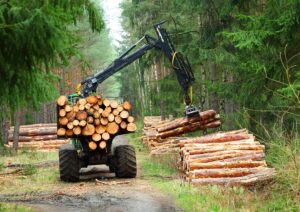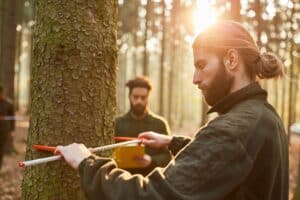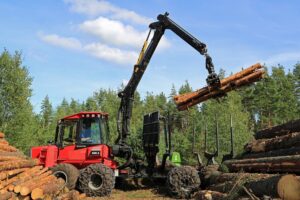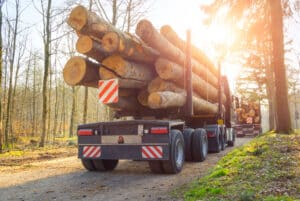Career Advice
This Article Talks About:
Home » Everything You Need To Know » What Skills Do Foresters Need?
What Skills Do Foresters Need?
https://www.whatjobs.com/info/career-advice/everything-you-need-to-know/what-skills-do-foresters-need

Looking after a huge forest isn’t easy, and foresters need a wide array of skills to do their job well.
Forestry, a profession dedicated to managing and conserving forests, is both an art and a science, which means foresters need a surprising range of talents to be good at what they do.
As the guardians of one of the planet’s most vital ecosystems, foresters play a pivotal role in ensuring the sustainable use of forest resources.
To excel in forestry, a worker must possess unique skills.
Let’s have a look at the essential skills required in forestry.
Ecological Knowledge
Understanding the intricacies of forest ecosystems is vital.
A forester must have a huge level of knowledge of the relationships between flora, fauna, soil, and water.
This knowledge helps them predict how specific actions can impact the ecosystem, ensuring that forests remain balanced and thriving.
Tree Identification
Forests are diverse and contain a myriad of tree species.
It is crucial to recognize different species, understand their growth patterns, and know their ecological significance.
This skill is especially vital when selecting trees for logging or conservation.
Forest Management Techniques
Forestry isn’t just about preserving forests; it’s also about using them sustainably.
Foresters must know how to harvest timber without depleting the forest, manage pests, and regenerate harvested areas.
Techniques like controlled burns, thinning, and reforestation are tools in a forester’s arsenal.
Technological Proficiency
With technological advancements, modern forestry has embraced tools like Geographic Information Systems (GIS) for mapping and drones for aerial surveys.
A forester must use these tools to gather data, analyze forest conditions, and plan interventions.
Physical Stamina and Endurance
Forestry often demands fieldwork in remote and rugged terrains.
Whether it’s trekking miles into a forest, climbing trees, or handling equipment, physical fitness is a must.
Communication Skills

Foresters regularly work with government officials, local communities, loggers, and conservationists.
Effective communication ensures that all stakeholders understand and support forestry objectives.
Problem-solving and Critical Thinking
Forests face numerous threats, from pests and diseases to illegal logging and climate change.
Foresters must think on their feet, devising strategies to combat these challenges while balancing ecological, economic, and social considerations.
Ethical Judgment
Forestry often presents moral dilemmas. For example, should you cut down a diseased tree that has become a habitat for endangered species?
It is essential to make ethically sound decisions in the best interest of the forest and its stakeholders.
Foresters Need Research Skills
The forestry world is ever-evolving, with new challenges and new solutions being discovered.
Foresters must stay updated with the latest research, be it new tree diseases or innovative conservation strategies.
A Passion for Nature
It’s really a skill, but a true passion for the natural world gets you a long way in forestry.
This passion fuels the perseverance needed to face the challenges of the job.
Teamwork
Forestry projects often involve multidisciplinary teams, including biologists, ecologists, and social scientists.
Collaborating effectively with these experts ensures comprehensive forest management.
Business Acumen
Understanding market dynamics, supply chain logistics, and business management can be invaluable for those in private forestry or timber production.
This ensures that forestry operations are not only sustainable but also economically viable.
Legal Knowledge is Vital For Foresters
A maze of laws and regulations often governs forests.
A forester must navigate these legalities adeptly, whether it’s logging permits, conservation easements, or indigenous rights.
Adaptability
Forests are dynamic, and so are the challenges they face.
A forester must be adaptable and ready to change strategies based on new data or unforeseen events.
Foresters Need to Understand Public Outreach and Education
Educating the public about the importance of forests and sustainable practices can amplify a forester’s impact.
Skills in public speaking, organizing workshops, and community engagement can be beneficial.
Final Thoughts
Forestry is a multifaceted profession that demands a wide range of skills.
From the tangible—like tree identification and technological proficiency—to the intangible—like passion and ethical judgment, a forester must be a jack of all trades.
As the stewards of our forests, their role is indispensable in ensuring that these green lungs of our planet continue to thrive for generations to come.















